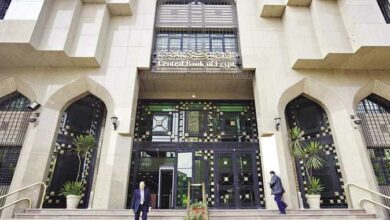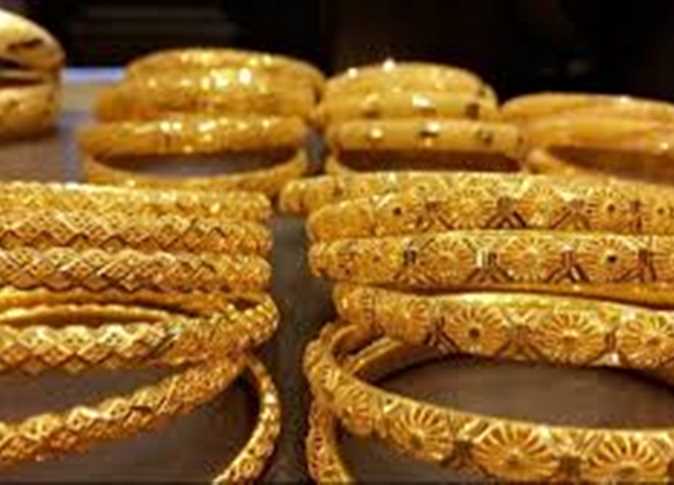Life in Egypt is about to get harder for ordinary people who will bear the brunt of inflation caused by a decline in the value of their currency. As elections approach, President Mohamed Morsy's Muslim Brotherhood may pay a political price.
After a 3.2 percent slide in the Egyptian pound's value against the dollar this week, some importers and shopkeepers say they are factoring in an even bigger decline and that the uncertainty will be reflected in steep price rises.
In a country that imports much of its food, including basics such as sugar, tea and cooking oil, that will be keenly felt. Around two-fifths of Egyptians live on the poverty line on less than $2 a day and depend on state-subsidized staples such as bread to get by.
Though the prices of state-subsidized basics will stay the same, the cost of other imported goods is about to go up, further stoking anger and resentment that is never far from the surface and increasing the potential for unrest.
"We will be forced to raise the price — it's not our choice, it's not corporate greed — or we shut down," said Sherif Abouzeid, executive manager of Global Counter and Trade Offset Co., which imports Indian tea for the lower end of the market.
"People are in despair. They are barely surviving and just able to feed their families. These are the type of clients we are working with. Now even their cup of tea is going to get more expensive."
The pound continued its slide on Wednesday, weakening to 6.39 to the dollar, down from 6.185 last week.
After Hosni Mubarak was toppled, the central bank used Egypt's foreign reserves to defend the currency. As of last week, the pound had lost just 6 percent of its value in the 23 months of political instability since Mubarak's fall.
Signaling it no longer had enough reserves to defend the pound, the central bank on Sunday introduced a new system for selling dollars to preserve what foreign currency it has left.
The reserves have fallen from $36 billion on the eve of the uprising that swept away Mubarak to around $15 billion in November — barely enough to cover three months' worth of imports into the country of 83 million people.
The pound's fall and the accompanying inflation will complicate the task facing Morsy as he tries to revive an economy broken by two years of turmoil.
The confrontational politics of Egypt's new democracy has already emerged as a major influencing factor.
Facing a backlash in the street over his move to fast-track a constitution many see as repressive, Morsy last month postponed tax rises believed to be part of an austerity package needed to secure an International Monetary Fund loan of $4.8 billion.
Morsy finds himself with a stark choice: the IMF loan is viewed as essential to dig the country out of its financial crisis and avoid a potentially uncontrollable fall in the currency's value. But to get the loan, Morsy would almost certainly have to press ahead with the unpopular measures.
Either option brings even higher political costs.
As it gears up for new parliamentary polls due to begin in less than two months, the Muslim Brotherhood's political arm, the Freedom and Justice Party (FJP), has tried to distance itself from some of Morsy's decisions.
The FJP was the biggest party in the lower house of Parliament that was dissolved in June by a court ruling.
With the Brotherhood's popularity already in retreat, the economy threatens to further undermine its performance in the coming polls.
'A huge multiplier effect'
Sensing the danger, some FJP members criticized Morsy's tax increases.
"The FJP is going to have to distance itself from some of the more confrontational policies. Whether or not that is going to be enough to address the concerns of voters, I don't know," said Shadi Hamid of the Brookings Doha Center.
"It will be interesting to see to what extent the voters lump Morsy, the Brotherhood and the FJP into the same basket."
The Egyptian state has long subsidized a handful of basic goods including sugar, tea, rice and cooking oil — support vital to many families' survival. It also subsidizes saucer-sized flat loaves that sell for just 5 piasters.
Samir Radwan, an economist who served as minister of finance from February to July 2011, said the poor would still be the most badly effected by price rises that he said would quickly filter into the shops.
"There is a huge multiplier effect to any devaluation," he said. "People take any opportunity to raise prices in a very exaggerated way."
"Egypt is a net importer of food — 40 percent of the food is imported — and a weaker pound means a higher food import bill. Then of course inflation will immediately follow and this hits the poor," he said.
Mahmoud Zada, owner of a chain of Cairo supermarkets, said he expected prices of imported goods to go up by a minimum of 30 percent. Eighty percent of the goods he sells are imported.
Purveyors of imported goods would be inclined to increase their prices sharply for reasons including uncertainty about how far the pound will fall, he said.
As it becomes harder for Egyptian importers to secure credit from overseas' suppliers, they would also charge customers more to reflect risk premiums.
"We are facing a very, very, very difficult rise — more than the rise in the dollar," Zada said.




